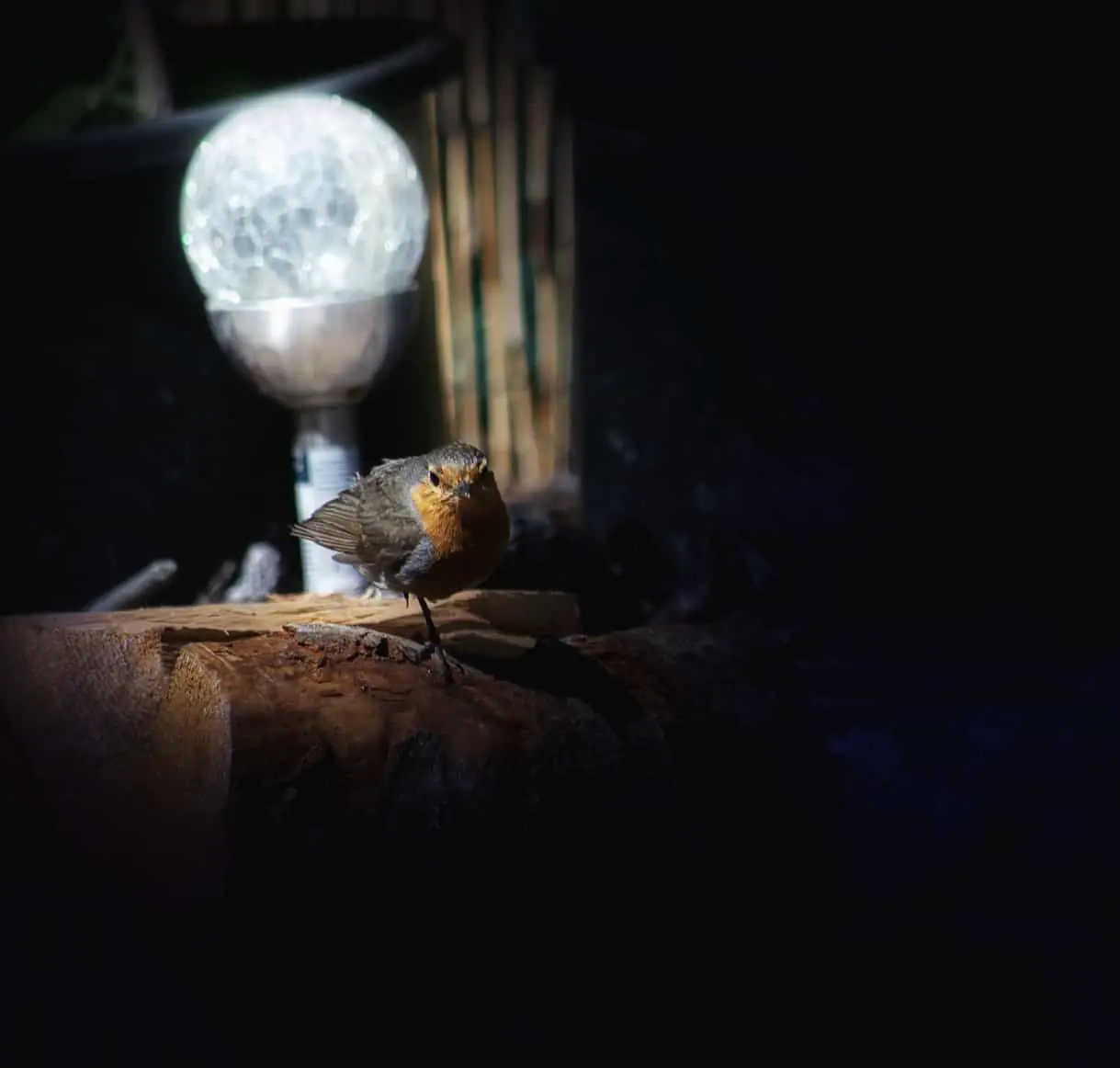During nightfall, many animals begin to prepare for sleep. For some, this means finding a safe place to rest for the night. Others may begin to slow down their metabolism to conserve energy.
But for robins, nightfall signals something else entirely: it’s time to start singing. Yes, the robin is a relatively unassuming creature but it’s also one of the animals that sing primarily at night. There are several theories on why they do this.
How Do Robins Sing At Night
To understand why robins sing at night, it’s important to first understand how it produces its unique song. Robins have two special types of feathers on its throat: inner syringeal feathers and outer tracheal feathers. It can vibrate these feathers to produce a beautiful, warbling song. Interestingly, robins are one of the few birds that can sing without moving its beak. Most birds produce their vocalisations by using muscles in their throat to push air through their syrinx (the bird equivalent of a voice box). But robins have special muscles that allow them to vibrate their syringeal feathers without moving their beak. This allows them to sing even while they’re sleeping!
Theories About European Robin’s Distinctive Nighttime Singing
There is a wide range of possible explanations for why robins sing at night:
- The robin may be trying to attract a mate. The mating season for robins typically takes place between April and July. During this time, male robins stake out their territory and sing to let other males know where they claim their turf. At night, the robin’s song carries much further than it would during the day, which makes it an effective way to assert dominance over a large area.
- These birds may be singing to establish their territory. While their mating season occurs in spring, its nesting season takes place between May and August. During this time, robins try to find a suitable location to build their nest. Once it has found a spot, it will sing to warn other robins away from its territory.
- Robins may be communicating with other fellow robins about food sources. The robin is a relatively social creature, and it often forms flocks with other robins. At night, robins may sing to let other members of its flock know where to find food.
- They may simply enjoy singing!
Although robins are mostly active during the day, they have been known to sing at night on occasion. Some experts believe that robins sing at night simply because they enjoy it.
No matter what the reason, robin’s nighttime singing is a fascinating behaviour that sets them apart from other birds.
How Does the Nighttime Singing Behaviour Vary Among Different Species of Robins Around the World
The European robin is not the only species of the robin that sings at night. In fact, many different species of robins can be found all over the world. Each species has its own unique song, and some of them sing at night while others sing during the day. Some experts believe that the nighttime singing behaviour of robins is unique to its species, while others believe that it is a trait that is shared by all robins. So far, there has been no definitive answer as to why they sing at night. However, several compelling theories offer possible explanations for this behaviour. Regardless of the reason, the their nighttime singing is a beautiful and mysterious behaviour that sets them apart from other birds.
Challenges in Studying Robin’s Nighttime Singing
There are several challenges in studying the European robin’s nighttime singing.
- It is difficult to observe this behaviour in the wild because it only happens at night.
- There are many different theories about why a robin sings at night, and it is difficult to determine which one is correct.
- A robin’s song is complex, and it is difficult to study its meaning.
- It’s challenging to study how they behave in different parts of the world.
Despite these challenges, there has been some progress in studying their nighttime singing. In recent years, scientists have used technology to study their song.
One study used a special microphone to record the robin’s song in the wild. This study found that the robin’s song is composed of many different notes, and each note is repeated several times. The researchers also found that their song is unique to its species.
Another study used a computer to analyse the robin’s song. This study found that the their song is composed of two parts, and each part is sung at a different time of night.
Despite these studies, there is still much to learn about these birds’ nighttime singing.
Final Thoughts
A robin’s nighttime singing is a fascinating behaviour that sets it apart from other birds. There are many different theories about why these birds sing at night, but there is still no definitive answer. However, several compelling theories offer possible explanations for this behaviour.
Given the challenges, scientists have made some progress in studying this behaviour. In recent years, technology has helped researchers to study the their song in the wild. However, there is still much to learn!
Hope this content helps. Thanks for reading!

